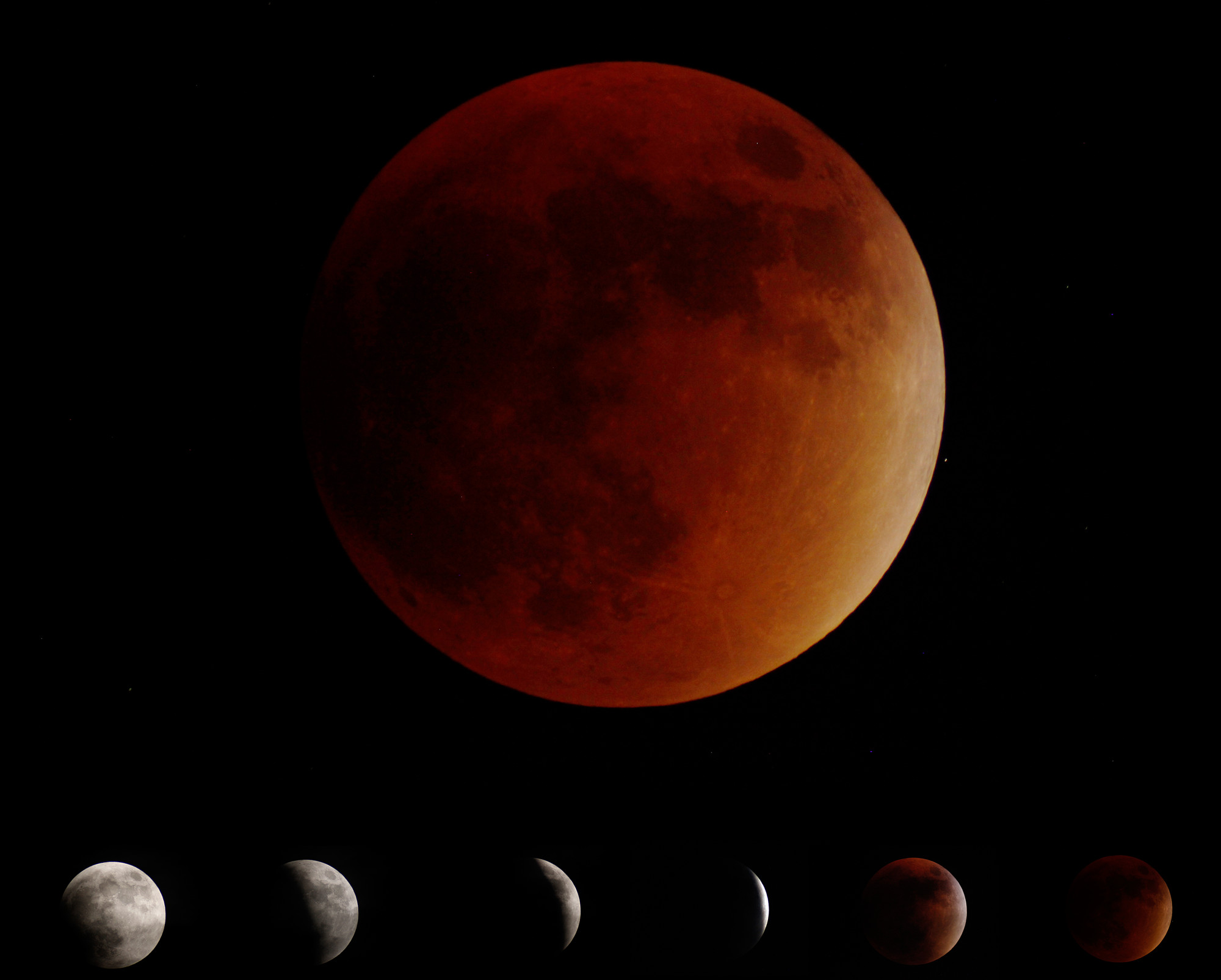Blame it on the moon
The super blood moon reminds us not to fall for correlations and confirmation biases
Ryan F. Mandelbaum • October 1, 2015

The “super blood moon” lunar eclipse on Sept. 27 caused some to worry about doomsday scenarios. [Image credit: Patrick Murtha]
You know that “super blood moon”? The lunar eclipse that shone over most of North America on September 27? Well, did you know that it also heralded the end of world? A new age is upon us, and you should listen, because this time there is a website about it with some pretty compelling evidence.
I am lying. The moon passing into Earth’s shadow while it is closest to us in its orbit will not herald Armageddon. However, humanity has a long history of the blaming the moon for things. The word “lunatic” originates from the fourth century Latin “lunaticus,” referring to moon-induced insanity, stemming from the belief that the moon influenced epileptic seizures. Even the sinking of the Titanic received a plausible lunar explanation. So could there be more to these lunar theories than lunacy?
Plenty of scientific studies have shown strange correlations with the behavior of the moon:
— Spruce tree rings grew larger with stronger lunar tides.
— Pinto beans soaked up more water in a pattern that matches lunar variations.
— Foraging behavior in mice varied with the lunar phase.
— Sudden unexpected death in epilepsy occurred most often during the full moon.
— More patients with medically unexplained stroke symptoms were admitted to the hospital during full moon phases.
In a study recently published online in the journal Pathophysiology, Michael Bevington who teaches classics at the Stowe School in Buckingham, England, tries to make sense of these studies and others. Ruling out any effects of light and gravity, Bevington cites a 1969 study to suggest that the moon’s interaction with Earth’s magnetic field could be the cause of at least some of these effects. First, he claims that the moon has a measurable affect on Earth’s magnetic field — though the articles he cites do not explicitly say this. He then cites a number of other studies that show the effect of the magnetic field on humans. For example, one study suggests that magnetic fields may even be the cause of extra-sensory perception of “presences.”
While Bevington’s argument seems interesting, or at least amusing, don’t go hiding from the moon yet. According to a recent press release from the University of California, Los Angeles, studies in the field of medicine, crime, and psychology disprove the effects of the moon on humans.
Two concepts heavily impact the validity of these lunar claims. First of all, correlation doesn’t imply causation – plenty of correlations are just coincidences, like the age of Miss America correlating with the number of murders by “steam, hot vapours and hot objects” in a given year. Secondly, confirmation bias — actively seeking information that will confirm your suspicions — can lead to false conclusions. All of Bevington’s studies demonstrate correlations, not proof. He focuses on studies that support his hypothesis and rejects those that don’t.
So enjoy lunar phenomena and keep thinking scientifically, because the world isn’t likely to end anytime soon, and if it does, it probably won’t be the moon’s fault.